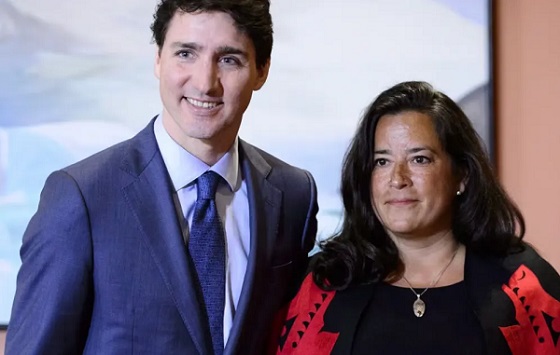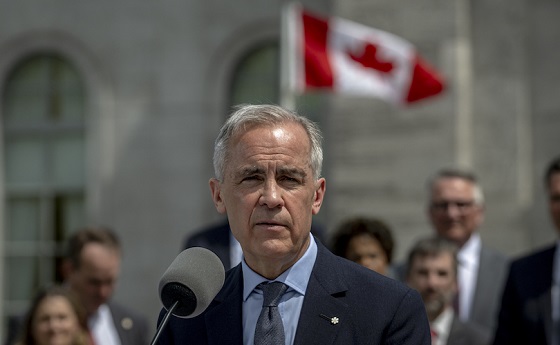Uncategorized
As protectors abandon Trump, investigation draws closer

NEW YORK — President Donald Trump has now been abandoned by two of his most powerful protectors, his longtime lawyer and the company that owns the National Enquirer tabloid, bringing a perilous investigation into his campaign one step closer to the Oval Office.
Both Michael Cohen and American Media Inc. now say they made hush money payments to a porn star and a Playboy Playmate for the purposes of helping his 2016 White House bid, an apparent campaign finance violation.
The women alleged affairs with Trump, and federal prosecutors say the payments were made at Trump’s direction.
The admissions by Cohen and AMI conflict with Trump’s own evolving explanations. Since the spring, Trump has gone from denying knowledge of any payments to saying they would have been private transactions that weren’t illegal.
Though prosecutors have implicated Trump in a crime, they haven’t directly accused him of one, and it’s not clear that they could bring charges against a sitting president even if they want to because of Justice Department protocol.
Nonetheless, Trump’s changing explanations have clouded the public understanding of what occurred and are running head-on into facts agreed to by prosecutors, AMI and Cohen, who pleaded guilty to campaign finance violations and other crimes and was sentenced on Wednesday.
“You now have a second defendant or group of defendants saying that these payments were made for the primary purpose of influencing the election, and that it was done in
Trump’s first explanation of the payment that would eventually help lead Cohen to a three-year prison sentence came at 35,000 feet over West Virginia.
Returning to Washington on Air Force One, Trump on April 6 for the first time answered questions about the reports of $130,000 in hush money paid to porn star Stormy Daniels, issuing a blanket denial to reporters while saying they would “have to ask Michael Cohen.”
Three days later, the FBI raided Cohen’s office, seizing records on topics including the payment to Daniels. Furious, Trump called the raid a “disgrace” and said the FBI “broke into” his lawyer’s office. He also tweeted that “Attorney-client privilege is dead!”
The raid was overseen by the U.S. attorney’s office in Manhattan and arose from a referral from special counsel Robert Mueller, who is investigating Russian election interference. At the time, Cohen said he took out a personal line of credit on his home to pay Daniels days before the 2016 election without Trump’s knowledge.
Later that month in a free-wheeling “Fox & Friends” interview, Trump acknowledged that Cohen represented him in the “crazy Stormy Daniels deal.”
In May, Trump and his attorneys began saying Cohen received a monthly retainer from which he made payments for nondisclosure agreements like the one with Daniels. In a series of tweets, Trump said those agreements are “very common among celebrities and people of wealth” and “this was a private agreement.”
People familiar with the investigation say Cohen secretly recorded Trump discussing a potential payment for former Playboy Playmate Karen McDougal two months before the election. On the tape, Cohen is heard saying that he needed to start a company “for the transfer of all of that info regarding our friend David,” a possible reference to David Pecker, Trump’s friend and president of AMI.
When Cohen began to discuss financing, Trump interrupted him and asked, “What financing?”
“We’ll have to pay,” Cohen responded.
Prosecutors announced Wednesday that AMI acknowledged making one of those payments “in concert” with the Trump campaign to protect him from a story that could have hurt his candidacy. The company avoided prosecution under a deal with prosecutors.
In August, Cohen pleaded guilty to campaign finance violations and other charges, saying he and Trump arranged the payment of hush money to Daniels and McDougal to influence the election. That next day, Trump argued that making the payments wasn’t a crime and that the matter was a civil dispute, then took a swipe at his former employee.
“If anyone is looking for a good lawyer, I would strongly suggest that you don’t retain the services of Michael Cohen!” he tweeted.
Earlier this week, Trump compared his situation to one involving President Barack Obama’s 2008 campaign. The Federal Election Commission, which typically handles smaller campaign finance violations, where the actions aren’t
But legal analysts said the accusations against Trump could amount to a felony because they revolve around an alleged conspiracy to conceal payments from campaign contribution reports – and from voters. It’s unclear what federal prosecutors in New York will decide to do if they conclude that there is evidence that Trump himself committed a crime.
The Justice Department, in opinions issued by its Office of Legal Counsel, has said a sitting president cannot be indicted because a criminal case would interfere with the duties of the commander in chief. Prosecutors in the Southern District of New York, and with Mueller’s office, would presumably be bound by that legal guidance unless the Justice Department were to nullify the opinions.
Politically, Trump’s shifting claims could harm his credibility with voters, but legally they may not make much of a difference.
“It’s not clear to me that he’s made any false statements in legal documents that could open him to liability for perjury,” Hasen said.
For the payments themselves to be a crime rather than a civil infraction, prosecutors would need to show that Trump knew that what he was doing was wrong when he directed Cohen to pay the women and that he did so with the goal of benefiting his campaign.
Trump has not yet laid out a detailed
That argument was advanced by former Sen. John Edwards, a North Carolina Democrat, in a similar campaign finance case that went to trial. But that may be tougher for Trump than it was for Edwards given the proximity of the president’s payment to the election — timing that, on its face, suggests a link between the money and his political ambitions.
Still, the cases aren’t always easy, as proven by the 2012 trial of Edwards. Jurors acquitted Edwards on one charge of accepting illegal campaign contributions, but couldn’t reach a verdict on the five remaining counts including conspiracy and making false statements. Prosecutors elected not to retry Edwards, the Democratic
___
Tucker reported from Washington.
___
Follow Lemire on Twitter at http://twitter.com/@JonLemire and Tucker at http://twitter.com/@etuckerAP
Jonathan Lemire And Eric Tucker, The Associated Press
Uncategorized
Trump Admin Establishing Council To Make Buildings Beautiful Again


From the Daily Caller News Foundation
By Jason Hopkins
The Trump administration is creating a first-of-its-kind task force aimed at ushering in a new “Golden Age” of beautiful infrastructure across the U.S.
The Department of Transportation (DOT) will announce the establishment of the Beautifying Transportation Infrastructure Council (BTIC) on Thursday, the Daily Caller News Foundation exclusively learned. The BTIC seeks to advise Transportation Secretary Sean Duffy on design and policy ideas for key infrastructure projects, including highways, bridges and transit hubs.
“What happened to our country’s proud tradition of building great, big, beautiful things?” Duffy said in a statement shared with the DCNF. “It’s time the design for America’s latest infrastructure projects reflects our nation’s strength, pride, and promise.”
“We’re engaging the best and brightest minds in architectural design and engineering to make beautiful structures that move you and bring about a new Golden Age of Transportation,” Duffy continued.
Mini scoop – here is the DOT’s rollout of its Beautifying Transportation Infrastructure Council, which will be tasked with making our buildings beautiful again. pic.twitter.com/
9iV2xSxdJM — Jason Hopkins (@jasonhopkinsdc) October 23, 2025
The DOT is encouraging nominations of the country’s best architects, urban planners, artists and others to serve on the council, according to the department. While ensuring that efficiency and safety remain a top priority, the BTIC will provide guidance on projects that “enhance” public areas and develop aesthetic performance metrics.
The new council aligns with an executive order signed by President Donald Trump in August 2025 regarding infrastructure. The “Making Federal Architecture Beautiful Again” order calls for federal public buildings in the country to “respect regional architectural heritage” and aims to prevent federal construction projects from using modernist and brutalist architecture styles, instead returning to a classical style.
“The Founders, in line with great societies before them, attached great importance to Federal civic architecture,” Trump’s order stated. “They wanted America’s public buildings to inspire the American people and encourage civic virtue.”
“President George Washington and Secretary of State Thomas Jefferson consciously modeled the most important buildings in Washington, D.C., on the classical architecture of ancient Athens and Rome,” the order continued. “Because of their proven ability to meet these requirements, classical and traditional architecture are preferred modes of architectural design.”
The DOT invested millions in major infrastructure projects since Trump’s return to the White House. Duffy announced in August a $43 million transformation initiative of the New York Penn Station in New York City and in September unveiledmajor progress in the rehabilitation and modernization of Washington Union Station in Washington, D.C.
The BTIC will comprise up to 11 members who will serve two-year terms, with the chance to be reappointed, according to the DOT. The task force will meet biannually. The deadline for nominations will end Nov. 21.
Uncategorized
New report warns WHO health rules erode Canada’s democracy and Charter rights

The Justice Centre for Constitutional Freedoms has released a new report titled Canada’s Surrender of Sovereignty: New WHO health regulations undermine Canadian democracy and Charter freedoms. Authored by Nigel Hannaford, a veteran journalist and researcher, the report warns that Canada’s acceptance of the World Health Organization’s (WHO) revised International Health Regulations (IHR) represents a serious erosion of national independence and democratic accountability.
The IHR amendments, which took effect on September 19, 2025, authorize the WHO Director-General to declare global “health emergencies” that could require Canada to follow directives from bureaucrats in Geneva, bypassing the House of Commons and the will of Canadian voters.
The WHO regards these regulations as “binding,” despite having no ability or legal authority to impose such regulations. Even so, Canada is opting to accept the regulations as binding.
By accepting the WHO’s revised IHR, the report explains, Canada has relinquished its own control over future health crises and instead has agreed to let the WHO determine when a “pandemic emergency” exists and what Canada must do to respond to it, after which Canada must report back to the WHO.
In fact, under these International Health Regulations, the WHO could demand countries like Canada impose stringent freedom-violating health policies, such as lockdowns, vaccine mandates, or travel restrictions without debate, evidence review, or public accountability, the report explains.
Once the WHO declares a “Pandemic Emergency,” member states are obligated to implement such emergency measures “without delay” for a minimum of three months.
Importantly, following these WHO directives would undermine government accountability as politicians may hide behind international “commitments” to justify their actions as “simply following international rules,” the report warns.
Canada should instead withdraw from the revised IHR, following the example of countries like Germany, Austria, Italy, Czech Republic, and the United States. The report recommends continued international cooperation without surrendering control over domestic health policies.
Constitutional lawyer Allison Pejovic said, “[b]y treating WHO edicts as binding, the federal government has effectively placed Canadian sovereignty on loan to an unelected international body.”
“Such directives, if enforced, would likely violate Canadians’ Charter rights and freedoms,” she added.
Mr. Hannaford agreed, saying, “Canada’s health policies must be made in Canada. No free and democratic nation should outsource its emergency powers to unelected bureaucrats in Geneva.”
The Justice Centre urges Canadians to contact their Members of Parliament and demand they support withdrawing from the revised IHR to restore Canadian sovereignty and reject blind compliance with WHO directives.
-

 Alberta2 days ago
Alberta2 days agoFrom Underdog to Top Broodmare
-

 National2 days ago
National2 days agoWatchdog Presses Ottawa to Release Hidden Lobbying Rulings
-

 International2 days ago
International2 days agoNetanyahu orders deadly strikes on Gaza with over 100 dead despite ceasefire deal
-

 National2 days ago
National2 days agoWatchdog Asks Whether RCMP Brass Shielded Lobbyists in Ottawa’s Influence Scandals
-

 Opinion2 days ago
Opinion2 days agoBill Gates Shakes Up the Climate Discussion
-

 Business1 day ago
Business1 day agoCanada’s economic performance cratered after Ottawa pivoted to the ‘green’ economy
-

 Business1 day ago
Business1 day agoCanadians paid $90 billion in government debt interest in 2024/25
-

 Business23 hours ago
Business23 hours agoBank of Canada governor warns citizens to anticipate lower standard of living









